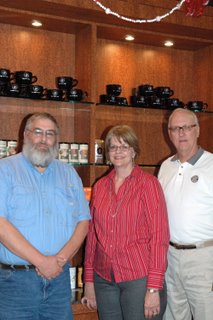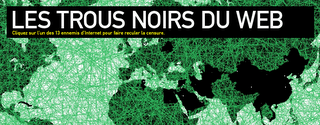Here is something that I will gladly listen to year-round, but is it especially appropriate around Christmas. Messiah, by Handel, is an oratorio, which essentially is an opera performed without acting, costumes or sets. My understanding is that this was a musical form developed to work around restrictions on performing operas during Lent.
I will resume posting after December 25th, so all of you have a joyous Christmas Day as we celebrate the birth of our Lord.
Messiah: Part ILibretto by Charles Jennens, after the Holy Scriptures. Music composed in 1741 by G.F. Handel. First performed in Dublin for the benefit of charities. Subsequently performed regularly for the benefit of the Foundling Hospital.
Scriptures taken from the King James Version (1611) and the Great Bible (1539).
Performance by Christopher Hogwood and the Academy of Ancient Music (1980)
SinfonyRecitative, accompanied (Tenor): Comfort ye, comfort ye my people, saith your God; Speak ye comfortably to Jerusalem and cry unto her, that her warfare is accomplished, that her iniquity is pardoned. The voice of him that crieth in the wilderness: Prepare ye the way of the Lord. make straight in the desert a highway for our God. Isaiah 40:1-3
Aria (Tenor): Every valley shall be exalted, and every mountain and hill made low: The crooked straight and the rough placed plain. Isaiah 40:4
Chorus: And the glory of the Lord shall be revealed, and all flesh shall see it together: for the mouth of the Lord hath spoken it. Isaiah 40:5
Recitative, accompanied (Bass): Thus saith the Lord of hosts: yet once a little while, and I will shake the heavens and the earth, the sea and the dry land, and I will shake all nations, and the desire of all nations shall come. Haggai 2:6-7
The Lord, whom you seek, shall suddenly come to his temple; even the messenger of the covenant, whom ye delight in. Behold, he shall come, saith the Lord of hosts. Malachi 3:1
Aria (Soprano): But who may abide the day of his coming? And who shall stand when he appeareth? For he is like a refiner's fire. Malachi 3:2
Chorus: And he shall purify the sons of Levi, that they may offer unto the Lord an offering in righteousness. Malachi 3:3
Recitative (Alto): Behold, a virgin shall conceive, and bear a son, and shall call his name Emmanuel: God with us. Isaiah 7:14
Aria (Alto) and Chorus: O thou that tellest good tidings to Zion, get thee up into the high mountain; O thou that tellest good tidings to Jerusalem, lift up thy voice with strength; lift it up and be not afraid; say unto the cities of Judah: Behold your God. Isaiah 40:9
Arise, shine, for thy light is come, and the glory of the Lord is risen upon thee. Isaiah 60:1
Recitative, accompanied (Bass): For behold, darkness shall cover the Earth, and gross darkness the people: But the Lord shall arise upon thee, and his glory shall be seen upon thee. And the Gentiles shall come to thy light, and kings to the brightness of thy rising. Isaiah 60:2-3
Aria (Bass): The people that walked in darkness have seen a great light, and they that dwell in the land of the shadow of death, upon them hath the light shined. Isaiah 9:2
Chorus: For unto us a child is born unto us a son is given, and the government shall be upon his shoulder, and his name shall be called Wonderful, Counselor, the might God, the everlasting Father, the Prince of Peace. Isaiah 9:6
PifaRecitative (Soprano): There were shepherds abiding in the fields, keeping watch over their flocks by night. Luke 2:8
Recitative, accompanied (Soprano): And Lo! The angel of the Lord came upon them and the glory of the Lord was round about them, and they were sore afraid. Luke 2:9
Recitative (Soprano): And the angel said unto them, fear not, for behold, I bring you tidings of great joy, which shall be to all people: for unto you is born this day in the city of David, a Saviour, which is Christ the Lord. Luke 2:10-11
Recitative, accompanied (Soprano): And suddenly there was with the angel a multitude of the heavenly host, praising god and saying: Luke 2:13
Chorus: Glory to God in the highest, and peace on earth, good will towards men. Luke 2:14
Aria (Soprano): Rejoice greatly, O daughter of Zion, shout, O daughter of Jerusalem, behold, thy king cometh unto thee. He is the righteous Saviour and he shall speak peace unto the heathen. Zechariah 9:9-10
Recitative (Soprano): Then shall the eyes of the blind be opened, and the ears of the deaf unstopped; then shall the lame man leap as an hart, and the tongue of the dumb shall sing. Isaiah 35:5-6
Aria (Soprano): He shall feed his flock like a shepherd: and he shall gather the lambs with his arm, and carry them in his bosom, and gently lead those that are with young. Isaiah 40:11
Come unto him all ye that labor, that are heavy laden, and he will give you rest. Take his yoke upon him and learn of him, for he is meek and lowly of heart, and ye shall find rest unto your souls. Matthew 11:28-29
Chorus: His yoke is easy and his burden is light. Matthew 11:30
powered by performancing firefox





















